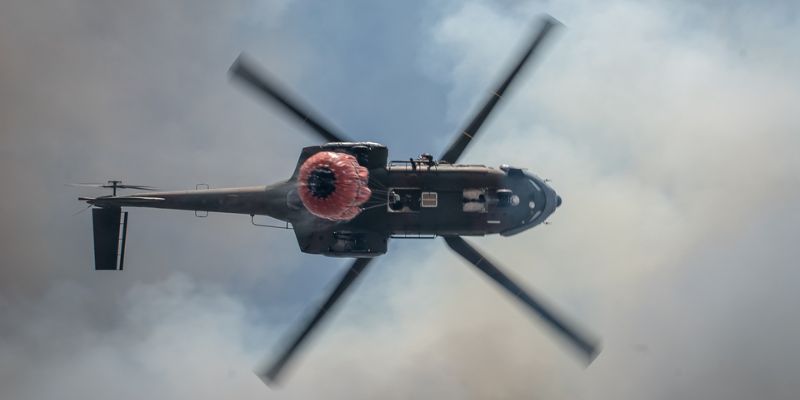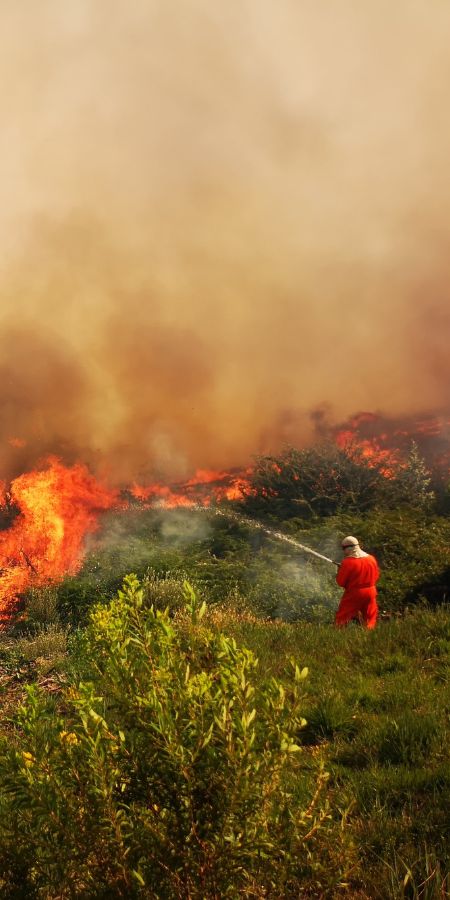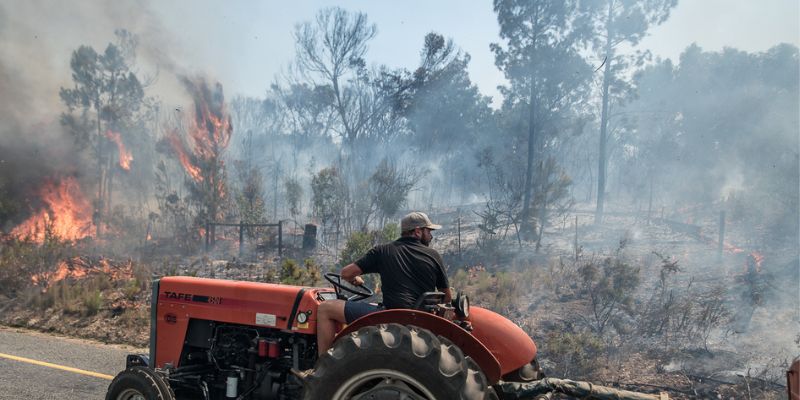
Now is the ideal time to get your affairs in order for the coming fire season.
We have received the information and advice below from Herman van Dyk, goFPA board member and representative of Overberg Wealth and Risk Management, and we share his guidelines and advice for landowners to review their insurance and, where necessary, review the fine print. It is nevertheless very important that you also seek advice on the matter from your broker and lawyer, because we as the goFPA cannot accept liability for the correctness of the below.
“With fire season approaching, the spring months provide an opportunity to make sure you’re adequately prepared,” says Herman.

“The primary goal of insurance is to prevent your farm from having to close its doors. So, it’s important to identify the risks that have the potential to financially harm your farm.”
In doing so, and with help from your broker, you can choose the right cover to safeguard your land.

Understanding different kinds of insurance
“Landowners know they need fire insurance, but they’re not always sure what it entails,” says Herman. By being informed about the different kinds of cover, you can be assured that you are properly prepared. Your options are:
-
Liability cover
protects you if a fire spreads from your land and causes damage to third-party property and even loss of life elsewhere, regardless of whether the fire started on your land or not.
-
Fire-extinguishing-cost cover
enables you to prevent a fire from spreading from your land and for extinguishing and fighting the fire within your boundaries. * Please note, this insurance cannot be used to prevent a fire from reaching your farm/property.
AND
-
Fire insurance for your assets
compensates you if your assets are damaged in a fire.
-
Fire-extinguishing-cost coverage
for your insured assets helps you to act proactively. If a fire is on its way to your property, this cover will enable you to try and put it out and prevent damage.

All kinds of cover are important to consider, but liability cover is among the most important protection a landowner can have. * Please discuss with a broker the costs of “umbrella” extension of your liability cover. There is a limit to the amount you can claim and may result in a potentially high excess. Depending on the policy you choose, there could also be a surcharge involved. Please also be sure to discuss this with your broker.
Herman says, “When you neglect to insure your vehicle, you can run into cash-flow issues. But if you neglect to take out sufficient spread-of-fire cover, the financial impact can be so great that you can lose your land.
The value of a goFPA membership
Although membership of a fire protection association (FPA) like the goFPA is not currently a requirement for most coverage, insurers are becoming stricter.
“If you are an FPA member, some insurers offer discounted premiums and lower excess payments. This is because your memberships give you access to expertise and support that helps lower fire risk.”
An FPA membership is also best practice to prove your fire readiness. For example, if a neighbour wants to hold you accountable for damage caused by a fire that broke out on your land, it first must be proven that there was negligence on your part.
“If you aren’t an FPA member, you will automatically be seen as negligent. Then it’s your responsibility to prove that you were not negligent,” explains Herman. But with a membership, the Fire Act reverses the burden of proof.
“This means that the responsibility to prove negligence now falls on your neighbour. This reversed burden of proof is a considerable advantage in court, because it is very difficult to prove negligence, or lack thereof.”
In the heat of the moment…
When a fire rages, it is important to follow the proper protocol quickly. Firstly, it is a legal requirement to inform your neighbours, the goFPA and the fire services immediately. Secondly, you must do everything in your ability to stop the spread of the fire.
If the fire becomes out of control, it is sometimes necessary to call in aerial support. The fire services will usually make this call, but landowners themselves can also request it immediately via the fire chief. In such a case, the landowner is also responsible for the costs.
In a moment like this, the right cover can turn the tide in a battle against a spreading fire.
If you have fire extinguishing extension under your liability section, you will have cover for the costs of aerial support to prevent the fire from spreading from your land.
“Many landowners neglect taking out this cover, but it’s necessary, seeing as aerial support is extremely expensive,” says Herman.
It is important to remember that insurers only cover fire extinguishing on your own property. So make sure beforehand that your neighbour also has sufficient coverage to call in aerial support if it is needed. This way, there is a greater chance of extinguishing a fire before it gets out of control.
What does the law say?
It is important to remember that your insurance policy is always subservient to national laws. In the case of fire cover, it is important to ensure your compliance with the Fire Act.
The Fire Act requires, among other things, that you have adequate fire breaks and firefighting equipment, but the goFPA or your broker can give you more detailed instruction on how the law applies to you.
“We also advise landowners to take out umbrella liability insurance. This can expand your liability section by up to R20 million to make sure your cover is adequate and ensure peace of mind.”
The Fire Act also requires that your staff are trained for an emergency situation. The spring months are a good time to organise training through the goFPA to ensure everyone is well prepared by the time fire season arrives.
“Of course, knowing that you have adequate insurance also ensures peace of mind,” says Herman. “Talk to your broker and make sure that everything is in place, as it ought to be.”

Images: Justin Sullivan and Pieter Rossouw
